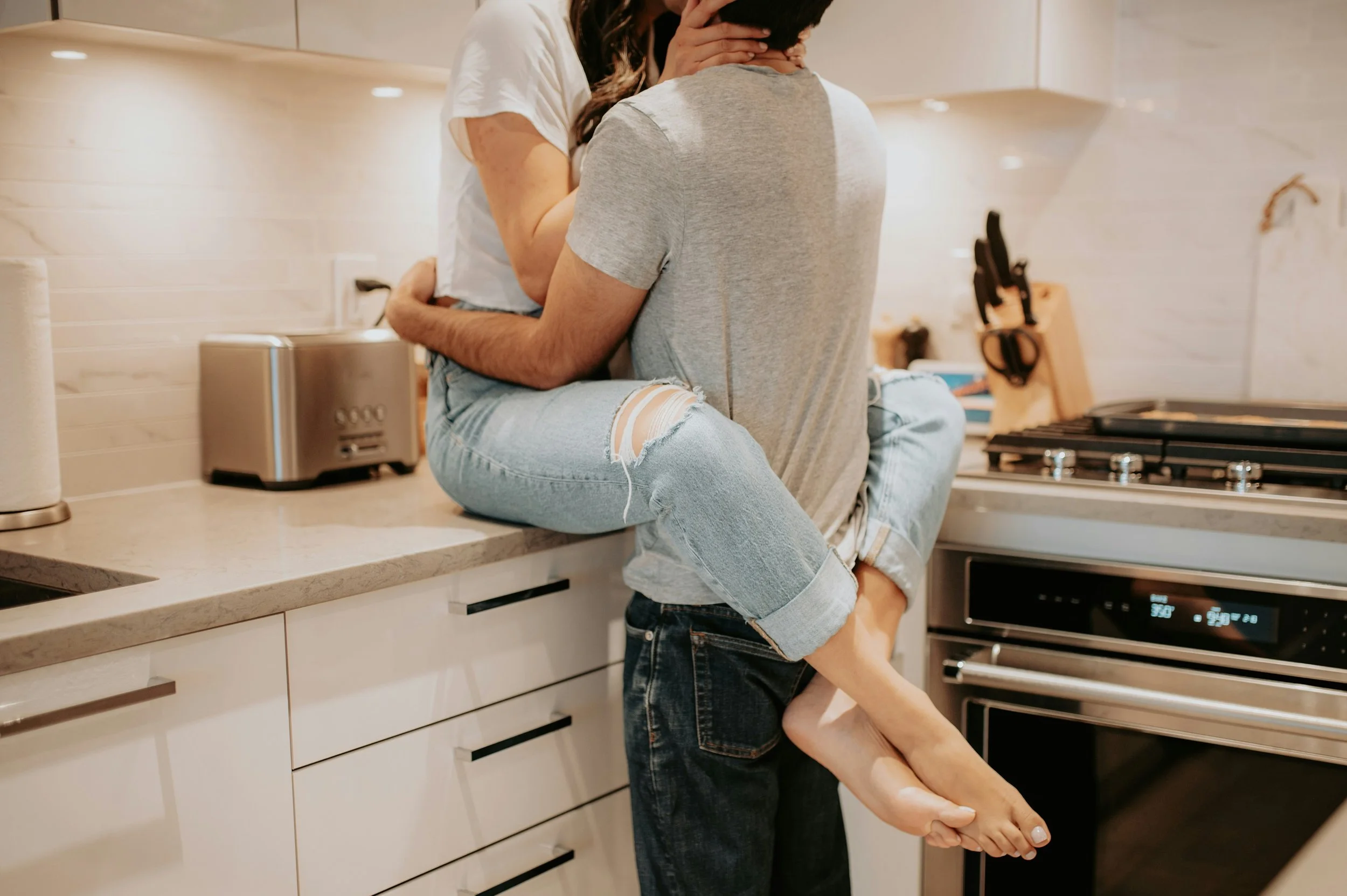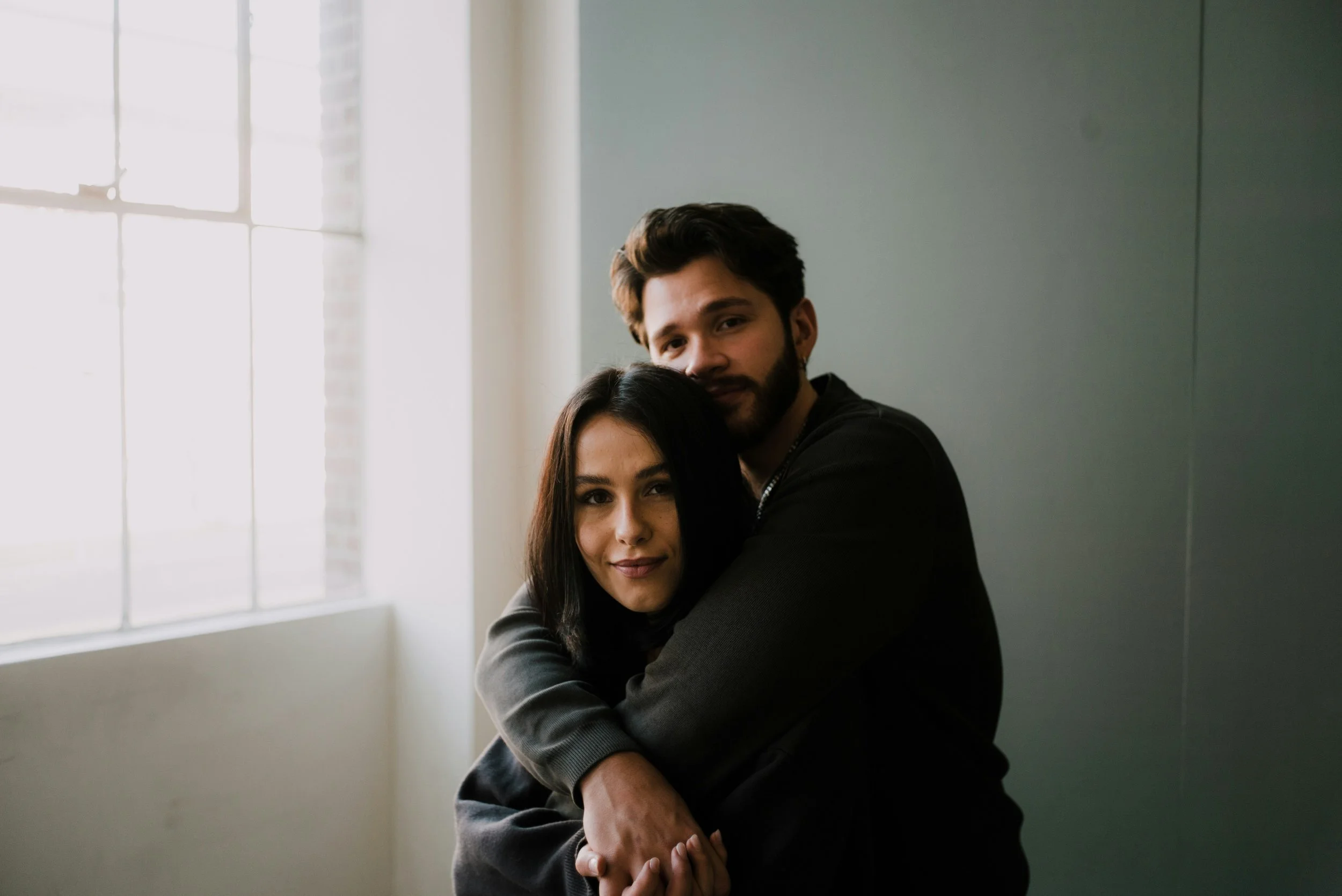How to Know If You’re Ready for Therapy
Why Readiness for Therapy Matters
Most people imagine therapy as something you turn to in crisis. But in reality, the healthiest relationships—and the most emotionally grounded individuals—start therapy long before things fall apart.
At Lovers Counseling, we call this Prevention-First Relationship Health™: the belief that you don’t have to wait for pain to begin growing. Therapy isn’t just about repair; it’s about strengthening the systems that protect your emotional and relational well-being.
What Readiness Actually Looks Like
Readiness doesn’t always sound like urgency. It’s often quieter—an inner nudge that says, “I think I’m ready to understand myself better.”
It might sound like:
“I’m fine… but not really.”
“I’m tired of carrying this alone.”
“I don’t feel like myself anymore.”
“I want to understand why I keep doing this.”
It might look like:
Struggling with boundaries or burnout
Overthinking, over-functioning, or emotional numbness
Repeating patterns that don’t serve you anymore
Longing for a deeper connection, but unsure where to begin
These are not signs of failure—they’re signs of self-awareness.
What Happens When You Begin
In therapy, you don’t have to have it all figured out. You don’t have to know where to start. You simply show up—and we start where you are.
When you begin therapy:
You’re met with curiosity and care, not judgment.
You learn tools for emotional regulation, communication, and boundaries.
You discover how to befriend your own mind instead of battling it.
You begin the process of becoming more yourself.
Explore Individual Counseling in Boulder, CO to see how therapy can help you build emotional clarity and self-trust.
How Therapy Strengthens Relationships
Even when you begin therapy alone, your relationships benefit. Therapy deepens self-awareness—the foundation of connection.
Through trauma-informed methods like IFS, EFT, and The Gottman Method, we help clients learn to:
Understand emotional triggers with compassion
Communicate needs clearly and calmly
Repair disconnection instead of reacting to it
Build emotional safety with partners and themselves
Learn more about Couples Counseling in Boulder, CO.
How to Build Emotional Security in Your Relationship
Creating a secure dynamic takes intention—not perfection. Here are a few ways to start:
1. Prioritize Emotional Safety
Safety allows vulnerability. Practice active listening, validation, and empathy before problem-solving. Make it a goal to create a space where both of you can express thoughts and feelings without fear. Practice listening without interrupting, validating each other’s experiences, and showing empathy before jumping to problem-solving.
2. Learn to Repair After Conflict
All couples fight. The difference between distress and security is whether repair happens afterward. A secure couple knows how to work to understand each other, how to admit "I got defensive," how to express or "Can we try again?" and how to say, "I'm sorry".
3. Practice Vulnerability
Letting your guard down and sharing what's really happening inside strengthens the bond between you. Emotional intimacy is built one brave moment at a time. Let your partner in. Connection grows through small, brave moments of truth.
4. Seek Support When You Need It
Therapy offers tools to help you both communicate and reconnect—especially when you feel stuck. Sometimes, it helps to have a guide. Working with a trauma-informed couples counselor can help you identify patterns, improve communication, and learn the tools to build a stronger emotional foundation.
Curious how these tools could shift your dynamic? Couples counseling can help you grow together with more ease. Book a consultation today →
7 Signs You’re Ready for Therapy
You feel “off,” but can’t name why.
You’re tired of repeating old patterns.
You feel emotionally flat or overstretched.
You crave a deeper connection or purpose.
You want to understand your reactions better.
You’ve outgrown old coping strategies.
You’re curious about who you could become with support.
Why This Gets Misunderstood
Many people believe therapy is a last resort. But in Boulder’s high-functioning culture, waiting until you’re “bad enough” often delays healing.
Therapy isn’t just for crisis—it’s for growth. It’s for the person who wants to lead, love, and live with more awareness.
What Makes Readiness Hard to Recognize
Our nervous systems are wired for survival. Sometimes that means staying in patterns that feel familiar—even when they’re painful.
Readiness often emerges as discomfort. The good news: discomfort is information. It’s your inner self signaling that you’re ready for change.
How We Heal Together
At Lovers Counseling, we integrate therapy with education—helping you build both insight and skills.
Our trauma-informed approach draws from:
Internal Family Systems (IFS) for understanding inner parts
Emotionally Focused Therapy (EFT) for attachment repair
Gottman Method tools for relational health
Transpersonal and somatic methods for holistic healing
You’ll leave not only with insight, but with practical tools for emotional and relational intelligence.
A Practice to Try This Week
The Self-Check-In:
What emotion is most alive in me right now?
Where do I feel it in my body?
What might it be asking me to understand?
Try writing these reflections in your Lovers Counseling Notebook. Awareness is the first step toward readiness.
What to Reflect On Together
How do we each know when we’re emotionally overwhelmed?
What would it look like to ask for support earlier?
How can therapy help us protect—not just repair—our connection?
When It’s Time to Ask for Help
If you’re wondering whether now’s the right time, that wondering itself is a sign. You don’t need to wait until it’s bad enough.
Therapy is an act of prevention. An investment in emotional safety. A commitment to the love you want to sustain.
Schedule your consultation today and take the first step toward a more emotionally intelligent life and relationship.
Or, if you’re curious about self-guided tools, explore our Education Studio for on-demand learning in Emotional and Relational Intelligence.
Final Thoughts: Therapy as Prevention, Not Repair
The most resilient individuals and couples don’t wait for disconnection to begin healing—they practice emotional health as a lifestyle.
Therapy offers a space to learn, grow, and strengthen your capacity for love—before the breaking point.
Your readiness is not a sign of weakness. It’s proof you’re ready to thrive.
Want more support in deepening your emotional connection? Our Couples Counseling in Boulder, CO, offers trauma-informed tools to help you and your partner create lasting emotional safety. If you’re engaged or planning your future together, our Premarital Counseling Course is a self-paced way to strengthen your bond before marriage. You can also explore more on this topic in our post, The Power of Couples Therapy.
What Emotionally Secure Relationships Look Like — and How to Build One”
Frequently Asked Questions
Do I need a crisis to start therapy?
No. Therapy is most effective when used preventively—to build insight, tools, and resilience before distress escalates. An emotionally secure relationship is a relationship where both partners feel safe, seen, and supported. Emotional security means you can express your needs without fear and trust your partner will respond with care. Clients build security with themself through individual counseling in Boulder and their partner in coupels counseling in Boulder.How do I know which type of therapy is right for me?
If you’re exploring personal patterns, start with individual therapy. If you want to strengthen communication and emotional safety in your partnership, couples counseling is ideal.What if I’m nervous to start?
That’s completely normal. A good therapist helps you feel safe, not exposed. We’ll go at your pace.Can therapy help even if things feel “fine”?
Absolutely. Prevention-first therapy helps you deepen awareness, maintain emotional security, and prevent burnout or disconnection before it begins.How do I begin?
Schedule a consultation to meet with a licensed therapist, or explore our on-demand education programs for immediate support.
You Don’t Have to Wait Until It’s “Bad Enough”
Starting therapy doesn’t mean something’s wrong with you. It means you’re brave enough to look inward. If you’ve been wondering whether now’s the time—this is your sign.
Schedule a consultation with our Boulder-based couples therapist today, or download our Free Love Language Guide.
Similar Posts from Your Boulder Couples Therapist
Looking for Support Beyond Therapy?
Explore our curated list of Boulder-based holistic healing professionals—trusted partners in your journey toward mind-body-soul alignment.
Relationship Resources
Our Free Love Language Guide
Whether you're just starting out or deepening your bond, this simple guide helps you grow together with clarity, care, and connection.
Read More Like This
Ready for Support That Actually Helps?
Whether you're navigating personal healing or relationship growth, we're here to support you with compassionate, trauma-informed care.











Emotional safety is the foundation of lasting love. Learn why it’s the one love language most couples overlook — and how you can start building it today in your relationship.